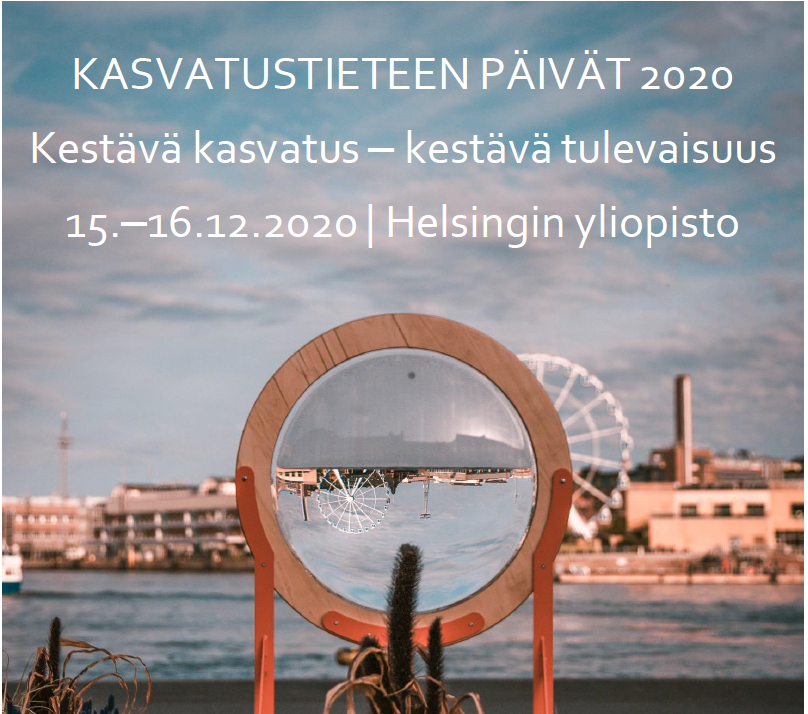Sig conveners: Annalisa Sannino (Tampere University) and Jaakko Hilppö (University of Helsinki)
Beside the conveners, the Sig recently extended coordination group includes:
Yrjö Engeström, University of Helsinki
Lasse Lipponen, University of Helsinki
Niina Mykrä, Tampere University
Sami Paavola, University of Helsinki
Hongda Lin, University of Helsinki
Liubov Vetoshkina, University of Helsinki
The Sig timetable consisted of the following events
Thematic Session 1: Expansive Learning
Ge Wei (Capital Normal University, Beijing, China): “Developing preservice teachers’ practical knowledge for social justice through formative interventions”
Rikke Buus Bøje (Aarhus University, Denmark): “Nurses’ contribution to development of transitional care practice”
Hongda Lin (University of Helsinki): “Developing policy constituencies: The expansive arrangements of an educational policy intervention”
Thematic Session 2: Change Laboratories in Educational Settings
Ruth Jensen, Ann Elisabeth Gunnulfsen, Hedvig Abrahamsen, and Kristin Helstad (University of Oslo): “Leading Reform Work in Upper Secondary Schools – Change Laboratories as Method (ChangeLead)”
Maria Spante, Anita Varga and Monica Egelström (University West, Sweden): “Diversity in agency: Experiences from three Change Laboratories to tackle gender grade gap in school”
Aydin Bal (University of Wisconsin-Madison, USA): “Learning Lab: An Enacted Utopia for Racial Justice and Inclusive Future-Making in Strange Times”
Thematic Session 3: Emerging Conceptualizations in Developing CHAT
Jaakko Hilppö (University of Helsinki), Teemu Suorsa (University of Oulu) and Anna Rainio (University of Helsinki): “Transitional activities: Children’s projects in Finnish preprimary education”
Daniele Morselli (Free University of Bolzano, Italy): “Connecting the dots: situating formative interventions in the panorama of qualitative research”
Esa Jokinen and Annalisa Sannino (University of Tampere): “Innovations in dialogue at the service of homelessness work”
Piia Ruutu (University of Helsinki): “Nothing happens until something moves : Embodied interaction of adolescents in the Change Laboratory intervention”
Thematic Session 4: Transformation, Agency and Double Stimulation
Hannele Kerosuo and Esa Jokinen (Tampere University): “Innovations and transformative agency in frontline homelessness work”
Elise Houssin (University of Strathclyde, UK): “Dialogue? Pupils’ voices and creativity for a methodology to learn in physical education”
Arthur Santiago and Cristiano Mattos (Federal Institute of São Paulo, Brazil): “Disturbing the network of activities: An example in a educational institution”
Yrjö Engeström, Pauliina Rantavuori, Piia Ruutu and Maria Tapola-Haapala (University of Helsinki): “From future orientation to future-making: A difficult leap in the lives of adolescents and in the work of researchers”

Figure above: Screenshot of one of the slides presented by Hannele Kerosuo and Esa Jokinen. Their presentations in Thematic Sessions 3 and 4 stem from the ongoing project on homelessness work funded by the Finnish Work Environment Find.
Invited Symposium: New Advances in Formative Interventions
The symposium focused on recent advances in the application of the Change Laboratory method in Finland. The Change Laboratory is a unique set of theoretical tools and design principles developed within the Finnish tradition of cultural-historical activity theory and which has been successfully applied and developed globally by diverse research teams. Today Change Laboratories are developed to meet the challenge of fourth generation activity theory, that is, to generate enacted utopias or alternatives to capitalism, realized by heterogenous coalitions of activity systems from different sectors and levels of the society.
The symposium began with an overview of challenges to and new developments in the Change Laboratory method by Professors Yrjö Engeström (University of Helsinki) and Annalisa Sannino (Tampere University). Next, Professor Lasse Lipponen and colleagues (University of Helsinki) shared their work on Change Laboratories and the discursive manifestation of contradictions in the work of early childhood education practitioners. After this, Dr. Anna Rainio (University of Helsinki) and Dr. Riikka Hofmann (University of Cambridge) presented their work on developing a range of discursive methodological tools to analyze changes in the way Change Laboratory participants re-vision the object of their work through collectively identifying differences of consequence in their practice. The symposium was closed by professor Sannino and colleagues with an analysis of three interconnected Change Laboratories within the Finnish Housing First policy to eradicate homelessness.

